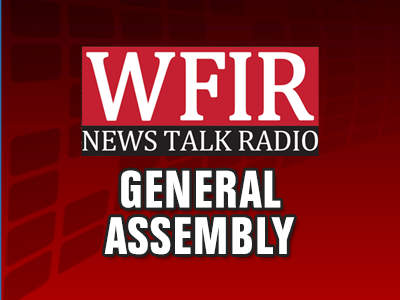President Donald Trump’s net worth has surged to $7.3 billion, a $3 billion increase from last year, according to a recent Forbes report. The financial windfall comes primarily from his crypto venture World Liberty Financial, a memecoin, and booming foreign real estate licensing deals — all while holding the nation’s highest office.

Dr. Chapman Rackaway, chair and professor of political science at Radford University, says this unprecedented financial growth while serving as president raises serious constitutional questions.
“Because the last thing that we want is for presidents to have conflicts of where by deciding to govern one way or another, that they would profit off of that,” Rackaway said. “That’s why there’s an emoluments clause in the constitution that specifically prohibits the president from getting those benefits. Now they call those gifts, but gifts could also mean according to the emoluments clause profit.”
Constitutional safeguards under scrutiny
The Constitution contains two emoluments clauses designed to prevent corruption. The Foreign Emoluments Clause prohibits the president from receiving any benefit from foreign governments, while the Domestic Emoluments Clause limits the president to a fixed salary without additional emoluments from federal or state governments.
Forbes reports Trump’s memecoin alone added $710 million to his wealth, while his real estate licensing business saw revenues jump an estimated 580% in 2024. New international deals have emerged in Saudi Arabia, Vietnam, Romania, India, Qatar and the United Arab Emirates since his return to office in January.
Rackaway says the situation creates concerning optics even if technically legal.
“So even if the president is doing everything on the up and up, it looks suspicious,” Rackaway explained. “So it’s a really, really difficult to look for the president to have the situation where he’s making, you’re not just a little bit of money, but making billions dollars a year, off of these side interests that are directly related to the stuff that he’s doing as president.”
Congressional response emerging
The 119th Congress has begun addressing these concerns, with a Senate resolution introduced condemning Trump’s private business agreements with foreign entities. Unlike previous congressional attempts to enforce the emoluments clauses during Trump’s first term, this resolution specifically targets his current financial arrangements.
Critics, including the Citizens for Ethics and Responsibility in Washington, argue Trump has “expressly organized his business interests in his second term to facilitate the receipt of foreign gifts” in likely violation of constitutional provisions.
Breaking with presidential tradition
Unlike his predecessors, Trump did not divest from his business interests or place them in a blind trust when taking office — a departure from established norms aimed at preventing conflicts of interest.
“Every other president, they would be fairly small business interest relative to what we’re talking about with President Trump, they would divest themselves or they would put their materials in blind trust, so that there was absolutely no incentive for them to think about their own enrichment over the good of the country,” Rackaway said.
Regulatory decisions benefit presidential finances
Since returning to office, Trump has rolled back regulatory enforcement of cryptocurrency and signed legislation favorable to the industry — actions that directly benefit his own financial interests. His World Liberty Financial venture has generated an estimated $1.4 billion from token sales, with a Trump family entity receiving approximately 75% of those proceeds.
Rackaway notes that the sheer scale of Trump’s outside earnings dwarfs his presidential salary, potentially creating problematic incentives.

“But know, we’re not talking about the $445,000 a year presidential salary here. We’re talking 10 figures, billions of dollars,” Rackaway said. “And that’s another thing that could call the ethics of things into question is that the money that he’s making as president is an absolute pittance compared to what he’s making outside of it in his business interest, would make you think may act in ways that are less than ethical because of the amounts involved.”
Legal challenges anticipated
Legal experts from the Brennan Center for Justice and the Constitutional Accountability Center suggest the current situation presents a more direct challenge to the emoluments clauses than during Trump’s first term. Previous lawsuits were dismissed largely on procedural grounds without ruling on the constitutional merits.
While supporters argue Trump’s business acumen is precisely what makes him an effective leader, critics worry about the precedent being set for future presidents who might similarly leverage their office for personal gain.



